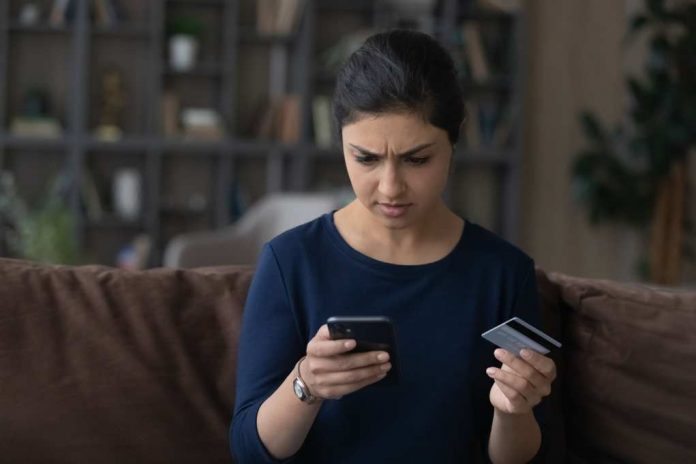
Imagine this: You’re at the checkout counter, ready to pay for your groceries. You slide your debit card, but then you see the dreaded “DECLINED” message. It’s an awkward moment that can make your stomach drop. But don’t worry, it’s a common problem and often there’s a simple explanation. Throughout this read, we’ll pinpoint the pitfalls that can lead to a declined card. With a little insight and preparation, you can make declined cards a thing of the past.
Common Reasons Behind a Declined Debit Card
Having your debit card declined can stir up all sorts of feelings and questions, mainly because it could be due to a variety of issues. It’s important to remember that for every problem, there’s likely a solution at hand. Here’s a rundown of the most common reasons why you might see that annoying “declined” notice:
- Insufficient Funds: Not having enough money in the account to cover the transaction.
- Technical Issues or Outages: Problems with the bank’s systems preventing transaction processing.
- Incorrect PIN: The wrong PIN number being entered multiple times.
- Expired Card: The card has passed its expiration date.
- Daily Limit Reached: Hitting the maximum withdrawal or purchase limit set by the bank.
- New Card Not Activated: A new debit card has been issued but not yet activated.
- Merchant Issues: Issues on the retailer’s end with processing the payment.
- Security Concerns: The bank detecting potential fraud based on unusual spending patterns.
- Damaged Card: Physical damage to the card that prevents it from being read.
- Bank Account Closure or Restrictions: The associated bank account is closed or has certain restrictions.
How to Fix a Declined Debit Card
If your debit card is declined, don’t worry – you can usually fix the problem that caused it. By staying informed and prepared, you can often resolve the setback and carry on with your transactions. Here’s how you can fix the usual problems that cause a debit card to be declined and get your card working again:
- Insufficient Funds: Regular balance checks and setting up account alerts for low balances.
- Technical Issues or Outages: Contacting your bank to check on system status and waiting out temporary glitches.
- Incorrect PIN: Make sure you remember your PIN and if you need to, reset it by getting in touch with your bank.
- Expired Card: Checking the expiration date of your card and requesting its renewal from the bank prior to the date.
- Daily Limit Reached: Being aware of your daily spending limits and requesting temporary increases when needed.
- New Card Not Activated: Activating your new card according to the bank’s provided instructions.
- Merchant Issues: Requesting the merchant to retry the transaction or using an alternative payment method.
- Security Concerns: Notifying your bank of any unusual transactions you expect to make and verify any suspicious transactions.
- Damaged Card: Getting in touch with your bank for a card replacement.
- Bank Account Closure or Restrictions: Discussing the status of your bank account with your financial institution to understand and address any closures or restrictions.
Preventing Future Declines
To make sure you don’t have problems when paying it’s important to take steps ahead of time. Being careful and planning with your debit card and bank account can help stop your card from being declined in the future. Here are some tips on how to avoid the hassle of a card that won’t go through:
- Budget Management: Plan how much you can spend based on what you earn and what you need to pay for. This will help you avoid spending money you don’t have.
- Automatic Balance Alerts: Most banks offer services that alert you when your balance is low. This way, you can add money before it’s too late.
- Inform Your Bank of Major Spending Changes: Before you make a big purchase or travel, tell your bank. This way, they won’t be surprised by your spending and won’t mistakenly block your card for fraud.
- Update Contact Information: Make sure your bank has your latest phone number and email. This way they can reach you quickly if they think there’s fraud or other security issues with your account.
- Card Expiration Management: Debit cards have expiration dates, and banks often send reminders when it’s time to renew. Pay attention to these notices and request a new card well before the old one expires so you don’t lose access to your money.
- Physical Card Care: Keep your card safe in a wallet or cardholder to avoid damage. Broken cards often don’t work and can cause declined payments if checkout machines are unable to read the magnetic stripe or chip.
By using these good money tips every day, you can really cut down the chance of your debit card ever getting declined. These tips will help you handle your money better, so you can shop without worries.
In Closing
Having your debit card declined isn’t a dead end – it’s usually something you can easily take care of. Begin by figuring out why it happened. Then, take the right steps to fix it, such as adding more money to your account, talking to your bank, or attempting to pay again. Be sure to also keep a close eye on your bank account and plan ahead to lower your chances of your card being declined. By staying informed and prepared, you can shop without worry and with the confidence that your card will work when you need it to. Remember these suggestions for a hassle-free and smooth payment experience every time you check out.




























